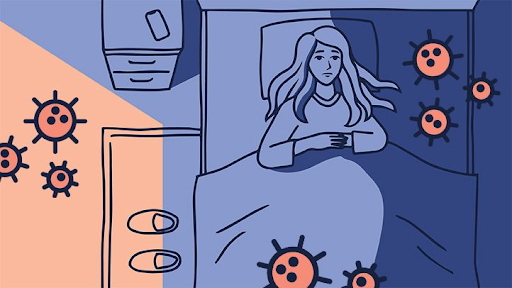
Studying for hours on end for little to no results can be distressing. What studying methods and habits can result in more meaningful study? Research shows that certain methods and habits can be more effective and efficient in studying.

Bubble tea was invented in Taiwan and has become one of the most popular drinks in the world. It consists of a refreshing mix of tea, boba, and toppings including chunks of pudding, jelly, and popping boba. One sip of bubble tea, and you will feel as if you’ve been transported to a Taiwanese night market where dozens of food vendors are waiting for you to explore.

It’s no news to anyone that a large portion of the population is sleep-deprived. So how did this change when the pandemic forced the world into a global lockdown? Has staying at home helped the world finally catch up on lost sleep?

Due to rising global temperatures, it is now more important than ever to limit the use of fossil fuels. Fossil fuels are releasing large amounts of CO2 into the air, causing climate change to worsen. However, there are alternatives that are covered in this piece.

Learn more about the wonders of animal reproduction without the involvement of sex cells, along with some interesting cases of human embryo development using only or mainly female DNA.

Have you ever wondered, dear reader, where all the garbage that flows in the rivers of the world goes? Eventually, the river meets the sea and so does the garbage. This write-up aims to sensitize the masses about the dire problem of plastic pollution in the ocean with a focus on The Great Pacific Garbage Patch(GPGP).

Dr. Garen Baghdasarian gave a presentation as part of the InterSTEM Speaker Series on coral reefs. His presentation answered many questions and created many important questions: with global threats such as climate change, what is the future of coral reefs? Why should humans care?

The Earth is a huge place, with much we have yet to discover, but as a species we are consuming natural resources at an alarming rate and many have predicted the destruction of our planet entirely. Is it possible for us to use up all of the Earth’s natural resources? What could the consequences of this be?

Spotify is the biggest music streaming platform in the world, with over 70 million songs and 356 million users. The most popular feature of Spotify is its ability to personalize based on users’ preferences with a mesh of machine learning models and data analysis algorithms that proves to be virtually limitless as the user community continues to grow.

Antibiotic resistance has become a pivotal topic for biomedical research in recent years. Its ability to hinder advancements in drug development makes it one of the biggest threats to public health. Approximately 2.8 million people in the United States develop an infection due to antibiotic resistance each year.